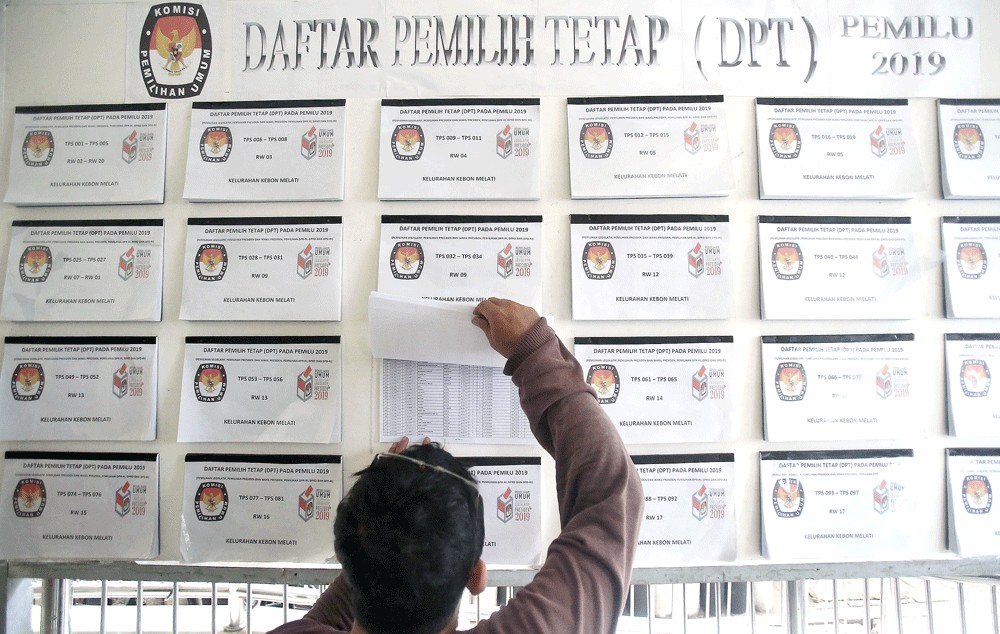Popular Reads
Top Results
Can't find what you're looking for?
View all search resultsPopular Reads
Top Results
Can't find what you're looking for?
View all search resultsElection threat: Technicalities
This year’s simultaneous presidential and legislative elections are challenging for this nation in many ways. Campaigning has been largely marked by hatred, fake news and backbiting, which may leave nagging wounds long after the dust has settled.
Change text size
Gift Premium Articles
to Anyone
T
his year’s simultaneous presidential and legislative elections are challenging for this nation in many ways. Campaigning has been largely marked by hatred, fake news and backbiting, which may leave nagging wounds long after the dust has settled. With the April 17 balloting approaching, a new threat looms, not necessarily the risk of vote-rigging but technical faults in administering what observers consider the world’s most complex elections.
The danger is real, clear and present. Unlike in previous elections, this time, more than 5.6 million poll workers face extremely arduous bureaucratic procedures in manning about 809,500 polling stations across the country and overseas. One mistake in any step of the poll administration may render the entire process invalid, thus requiring a revote, according to rules.
In the worst case scenario, a revote, even if only necessary in dozens or hundreds of polling stations, would give candidates, particularly the losing side, ammunition to question the credibility of the elections, if not to reject the poll results. Nevertheless, one small mistake is enough to spoil the elections, hence the legitimacy of the elected government.
Poll workers, who are the vanguards of the General Elections Commission (KPU), therefore, play a pivotal role in ensuring the simultaneous elections run in a free, fair and credible manner. They were selected among locals, many of whom are neighborhood unit heads for practical reasons. Like KPU commissioners, poll workers must prove their impartiality.
Working on the field, the poll workers will face the risk of technical faults as soon as voting begins at 7 a.m. on April 17. They have to make sure that only eligible voters cast ballots through careful registration and verification. When balloting ends at 1 p.m., or later if the polling station must accommodate additional permitted voters from other polling stations, poll workers will not only have to avoid mistakes in closely monitored vote counting; they must then fill out by hand all the documents and forms to be submitted to the KPU. Those documents must be written into 49 copies while carbon copies are not allowed.
The Constitutional Court has anticipated the difficulties by extending the deadline for vote counting by 12 hours, from midnight to noon on April 18. However, the court decision delivered on March 28 does not remove the poll workers’ burden.
Despite persisting risks, thousands of poll workers, including those in the capital, have yet to undergo technical training. If they have, the much-needed drill only lasted a few hours. In some areas, poll workers have dug into their own pockets to organize the training.
Budget constraints have been blamed for the lack of preparations. Such excuses have been raised since October 2017, when the KPU opened registration for political parties intending to take part in the elections.
With fewer than 10 days remaining, the KPU must do what it takes to ensure no poll worker is left untrained, simply to minimize technical errors that can endanger the historic elections, hence the country’s democracy.










